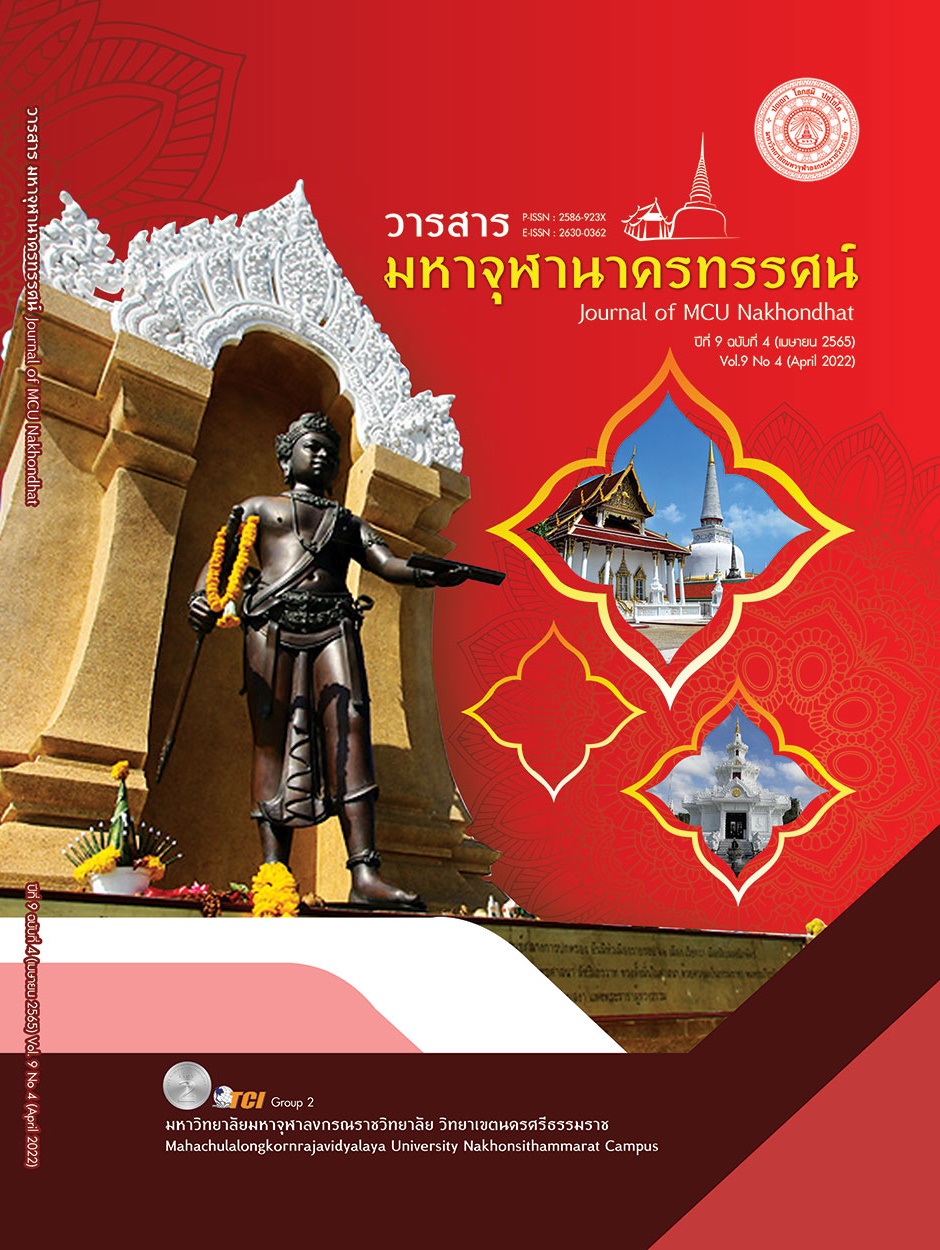RIGHT TO DEFEND THE ALLEGATIONS OF STATE OFFICIAL ACCUSED OF BEING AN ALLEGED CULPRIT: STUDY OF NATIONAL ANTI-CORRUPTION COMMISSION (NACC) TO ENTRUST INVESTIGATOR TO CONDUCT TO THE INQUIRY
Main Article Content
Abstract
The Objectives of this research article were to analyze and study for the rights to obliterate the allegations of the officials as accused enforced by the National Anti-Corruption Commission (NACC) and investigating officials. In addition, the article shall compare Thai evidence accumulation processes and the accused officials’ rights for answering allegations of wrongdoing among France, Japan, and the State of New South Wales in Australia to improve justice for the accused.This study is based on qualitative research based on document research, articles as well as electronic media information relating to the evidence collection process, including the right to answer allegations of government officials accused of malfeasance, which are prosecuted by the NACC, inquiry official and foreign countries.According to the studies, it has been discovered that the investigative processes by the officials are somehow not relevant to the inquiry committed by the NACC which are more inclined to generate concerning issues regarding answering the allegation rights and the rights for the evidence examination before clarifying their allegations. In accordance with traditional criminal cases, France and Japan share the same protocols for evidence accumulation; on the other hand, the State of New South Wales in Australia appoints the independent Anti-Corruption Commission that partly shares the same operative processes as the Thai National Anti-Corruption Commission, but different methodologies for evidence accumulation processes are significantly associated with general criminal cases. Accordingly, the result of the research suggests that the evidence accumulation processes by investigating officials are considerably required any guarantees for the accused of not lower than the fundamental investigative processes designated by the National Anti-Corruption Commission; that is, the accused shall have lawful rights to obliterate their allegations within proposed deadline, rights of consulting a legal practitioner or within-three persons so accused can be consulted by his legal adviser in the presence of the allegation clarification, and before such clarification the accused shall be able to ask for evidence examination.
Article Details

This work is licensed under a Creative Commons Attribution-NonCommercial-NoDerivatives 4.0 International License.
References
เกรียงไกร เจริญธนาวัฒน์. (2547). หลักกฎหมายว่าด้วยสิทธิเสรีภาพ. กรุงเทพมหานคร: วิญญูชน.
ณัฐถาวดี ลี้ตระกูล. (2555). สิทธิในการมีทนายความ : ศึกษาเปรียบเทียบผลการละเมิดสิทธิในชั้นสอบสวนและชั้นพิจารณา. ใน วิทยานิพนธ์นิติศาสตรมหาบัณฑิต สาขานิติศาสตร์. มหาวิทยาลัยธุรกิจบัณฑิต.
พนิดา ศิวาพานิช. (2561). การนำหลักการไต่สวนสาธารณะมาใช้กับคดีที่อยู่ในอำนาจของคณะกรรมการป้องกันและปราบปรามการทุจริตแห่งชาติ. ใน สารนิพนธ์นิติศาสตรมหาบัณฑิต สาขานิติศาสตร์. มหาวิทยาลัยสุโขทัยธรรมาธิราช.
พระราชบัญญัติประกอบรัฐธรรมนูญว่าด้วยการป้องกันและปราบปรามการทุจริต. (2561). ใน ราชกิจจานุเบกษา เล่ม 135 ตอนที่ 52 ก หน้า 1. (21 กรกฎาคม 2561).
มานะ เผาะช่วย. (2556). ระบบการดำเนินคดีอาญาในชั้นเจ้าพนักงาน : ศึกษาเปรียบเทียบระบบของประเทศอังกฤษ ฝรั่งเศสและประเทศไทย. ใน ดุษฎีนิพนธ์นิติศาสตรดุษฎีบัณฑิต สาขานิติศาสตร์ . มหาวิทยาลัยธรรมศาสตร์.
รัฐธรรมนูญแห่งราชอาณาจักรไทย. (2560). ใน ราชกิจจานุเบกษา เล่ม 136 ตอนที่ 40 ก หน้า 1. (6 เมษายน 2560).
วศิน แดงประดับ. (2564). การสันนิษฐานว่าบุคคลทุกคนเป็นผู้บริสุทธิ์ : หลักการและข้อยกเว้นบางประการ. เรียกใช้เมื่อ 18 ตุลาคม 2564 จาก https://www.krisdika. go.th/data/activity/act229.pdf
สมัคร เชาวภานันท์. (2561). หลักสิทธิมนุษยชนกับการค้นหาความจริงในคดีอาญา. วารสารศาลรัฐธรรมนูญ, 20(59), 214-232.
สุวัฒน์ อุตส่าห์พานิช. (2552). การรวบรวมพยานหลักฐานในชั้นเจ้าพนักงาน : ศึกษากระบวนการได้มาซึ่งถ้อยคำของบุคคลก่อนหรือหลังตกเป็นผู้ต้องหา. ใน วิทยานิพนธ์นิติศาสตรมหาบัณฑิต สาขานิติศาสตร์. มหาวิทยาลัยธุรกิจบัณฑิต.
โสภณ รัตนากร. (2542). คำอธิบายกฎหมายลักษณะพยาน. (พิมพ์ครั้งที่ 4). กรุงเทพมหานคร: นิติบรรณนาการ.
Amnesty International Thailand. (2021). ปฏิญญาสากลว่าด้วยสิทธิมนุษยชน. เรียกใช้เมื่อ 12 กรกฎาคม 2564 จาก https://www.amnesty.or.th/our-work/hre/udhr/


